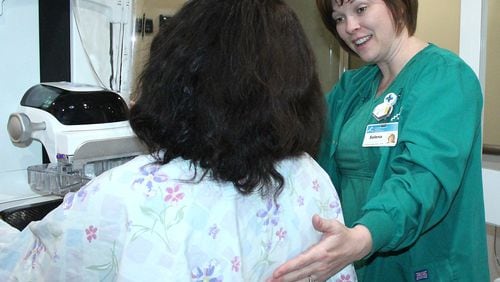A pair of new studies on breast cancer from Georgia State University point to a surprising medical villain: economic despair.
Both of the GSU studies looked at breast cancer that goes undiagnosed for too long. One of the studies by the university’s School of Public Health, on a type of the disease called inflammatory breast cancer, found a cluster of cases in South Georgia that is unlikely to be a coincidence.
The cluster, earlier reported in Georgia Health News, was one of just four such clusters that the study found in the U.S.
That study didn’t release the exact locations of the patients for privacy reasons. But it acknowledged that there’s a significant African-American population in Georgia, and diagnoses of the aggressive, late-stage cancer tend to be found at much higher rates in African-American women than whites. Poverty is part of the issue. A higher percentage of African-Americans have lower incomes than U.S. whites. That can make it harder to have a choice of doctors or even find time between work shifts to get to the doctor.
“Poverty status may be the most crucial risk factor,” that study found, “as it affects many additional factors, such as access to care, screening, transportation, living conditions and housing quality, and employment, which can in turn affect rates of rare BC (breast cancer) diagnosis,” that study found.
The second study took a deep dive into the geography of late-stage breast cancer diagnoses generally, and a quirk popped up. One of the risk factors, it turned out, was for white women — generally higher-income white women — who live in racially segregated rural areas.
Those women had higher rates of late-stage diagnoses — breast cancer that had gone undiagnosed for too long — than other white women in more diverse areas.
In contrast, some risk factors for African-American women were well known, including less education and information, and economic despair that breeds a reluctance to seek exams "for fear of 'asking for trouble.' "
The best possible answer the authors came up with, based on other general research, was a growing sense of pessimism among whites that they’ve lost ground. That might breed “despair and a sense of failure … a fatalistic attitude,” the authors said, that prompts them to spend less energy getting cancer screenings and keeping good health.
But the authors stressed that there may be other explanations and more research needs to be done.
About the Author








